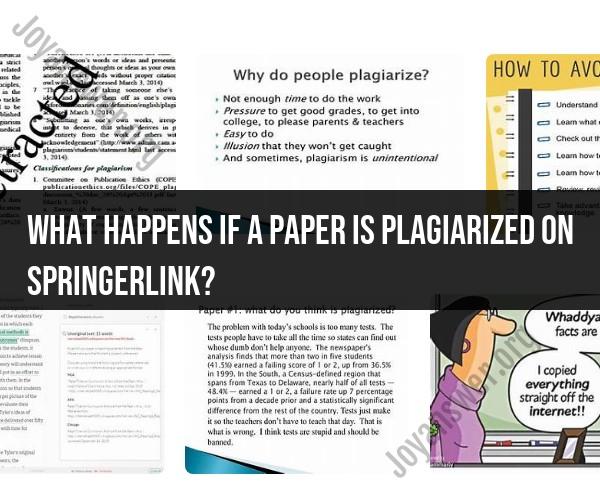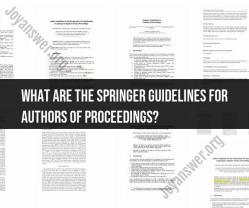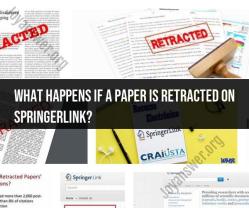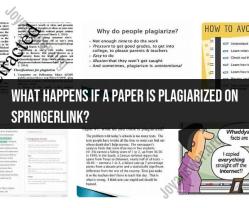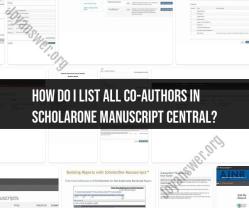What happens if a paper is plagiarized on SpringerLink?
Plagiarism is a serious academic and ethical violation that is not tolerated by academic institutions and publishers like SpringerLink. If a paper is found to be plagiarized on SpringerLink, several consequences may occur:
Paper Retraction: SpringerLink may retract the plagiarized paper from its platform. This means that the paper will be removed from public access, and it will no longer be available for download or citation.
Author Sanctions: The author(s) responsible for the plagiarism may face sanctions. These sanctions can include:
- Publication bans: The author(s) may be prohibited from publishing in journals or platforms associated with SpringerLink for a certain period.
- Academic penalties: If the author(s) are affiliated with an academic institution, they may face disciplinary actions from their institution, such as suspension or expulsion.
- Loss of reputation: Plagiarism can seriously damage an author's reputation within the academic and research community.
Legal Action: In some cases, plagiarism may be considered a breach of copyright or intellectual property rights, leading to legal action by the original content creators.
Damage to Credibility: Plagiarism can damage the credibility of both the author(s) and the institution they are affiliated with. It can also harm the reputation of the journal or publisher where the paper was submitted.
Loss of Funding: If the author(s) received funding for their research, they may lose funding opportunities in the future due to plagiarism allegations.
Ineligibility for Awards and Honors: Plagiarism can render authors ineligible for awards, honors, or grants in the academic and research fields.
Loss of Publishing Opportunities: Other publishers and journals may be reluctant to accept submissions from authors with a history of plagiarism.
To avoid these consequences, it is essential for authors to uphold academic integrity, properly attribute sources, and avoid all forms of plagiarism. Researchers should also be aware of the specific plagiarism detection and prevention policies of the journal or platform they are submitting their work to, as these policies may vary.
